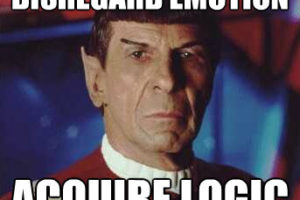Economics Practice Questions
- Posted by Brian Stocker MA
- Date December 15, 2014
- Comments 0 comment
Economics Practice Questions
1. The Securities and Exchange Commission regulates
a. Agriculture
b. Homeland Security
c. The national budget
d. The stock market
2. Federal income tax is
a. Paid every time you buy something
b. Paid through fees for government services
c. Due annually, although it is normally deducted from every paycheck
d. Due when you receive a government service
3. Which of the following is a good example of a public good?
a. A park
b. A plumber
c. An airline
d. A taxi
4. Sales tax is
a. Paid every time you buy something
b. Paid through fees for government services
c. Due annually, although it is normally deducted from every paycheck
d. Due when you receive a government service
5. Which of the following are exempt from federal taxes?
a. Large corporations
b. Small businesses
c. Athletes
d. Religious institutions
6. The federal government gets its funding by
a. Taxation
b. Selling goods
c. Investing in stocks
d. Donations
7. During the Great Depression, Keynesian economics was employed to
a. raise taxes and decrease government spending
b. lower taxes and decrease government spending
c. raise taxes and increase government spending
d. lower taxes and increase government spending
8. Bank deposits are guaranteed by the
a. SEC
b. FDA
c. HUD
d. FDIC
9. If a country’s imports have more value than its exports, it is said to
have a
a. trade surplus
b. trade deficit
c. balance of trade
d. globalized economy
10. What is a tariff?
a. a tax on imports
b. a fee for government services
c. a guaranteed bank deposit
d. a stock
Answer Key
1. D
The Securities and Exchange Commission, SEC, regulates The stock market. Choice A is incorrect; the FDA regulates agriculture. Choice B is incorrect; the Department of Homeland Security is charged protecting the United States from terrorist attacks. Choice C is incorrect; congress determines the national budget.
2. C
Federal income tax is due annually, although it is normally deducted from every paycheck. Choice A is incorrect; sales tax is paid every time you buy something. Choice B is incorrect; fees are distinct from taxes. Choice D is incorrect; income tax is distinct from government services.
3. A
A park is a good example of a public good. Choices B, C and D are incorrect; a plumber, an airline and a taxi are examples of private services.
4. A
Sales tax is paid every time you buy something. Choice B is incorrect; fees are distinct from taxes. Choice C is incorrect; sales tax is paid when you buy something, not annually. Choice D is incorrect; sales tax is distinct from government services.
5. D
Religious institutions are not subject to federal taxes. Choices A and B are incorrect; large corporations and small businesses are subject to taxes. Choice C is incorrect; Athletes are private citizens and are subject to taxes.
6. A
The federal government gets its funding by taxation. Choice B is incorrect; the government does not sell goods. Choice C is incorrect; the government rarely invests in stocks. Choice D is incorrect; the government rarely receives donations.
7. D
During the Great Depression, Keynesian economics prescribed lower taxes and increasing government spending to stimulated the economy. Choice A is incorrect; this is the opposite of the Keynesian approach. Choice B is incorrect; government spending was increased during the Great Depression. Choice C is incorrect; taxes were not raised during the Great Depression.
8. D
Bank deposits are guaranteed by the Federal Deposit Insurance Corporation. Choice A is incorrect; the SEC regulates the stock market. Choice B is incorrect; the FDA regulates food and drugs. Choice C is incorrect; HUD is the department of Housing and Urban Development.
9. B
If a country’s imports have more value than its exports, it is said to have a trade deficit. Choice A is incorrect; a trade surplus is the opposite. Choice C is incorrect; the balance of trade is the difference between imports and exports. Choice D is incorrect; globalization simply refers to the connectedness of the world’s economies.
10. A
A tariff is a tax on imports. Choice B is incorrect; a tariff is a tax on imports. Choice C is incorrect; tariffs have little to do with bank deposits. Choice D is incorrect; tariffs are not related to stocks.
SOCIAL STUDIES PRACTICE!
Date Published: Monday, December 15th, 2014
Date Modified: Friday, November 14th, 2025
Tag:Economics
You may also like
Listening Comprehension Practice – Solving a Problem
Listening Comprehension Practice – Everyday Conversations Below is an everyday conversation divided into 3 sections. After each section are questions – play the questions, then choose the best answer. Tests that have Listening Comprehension questions: Canadian Firefighter, CAEL and CELPIP …

